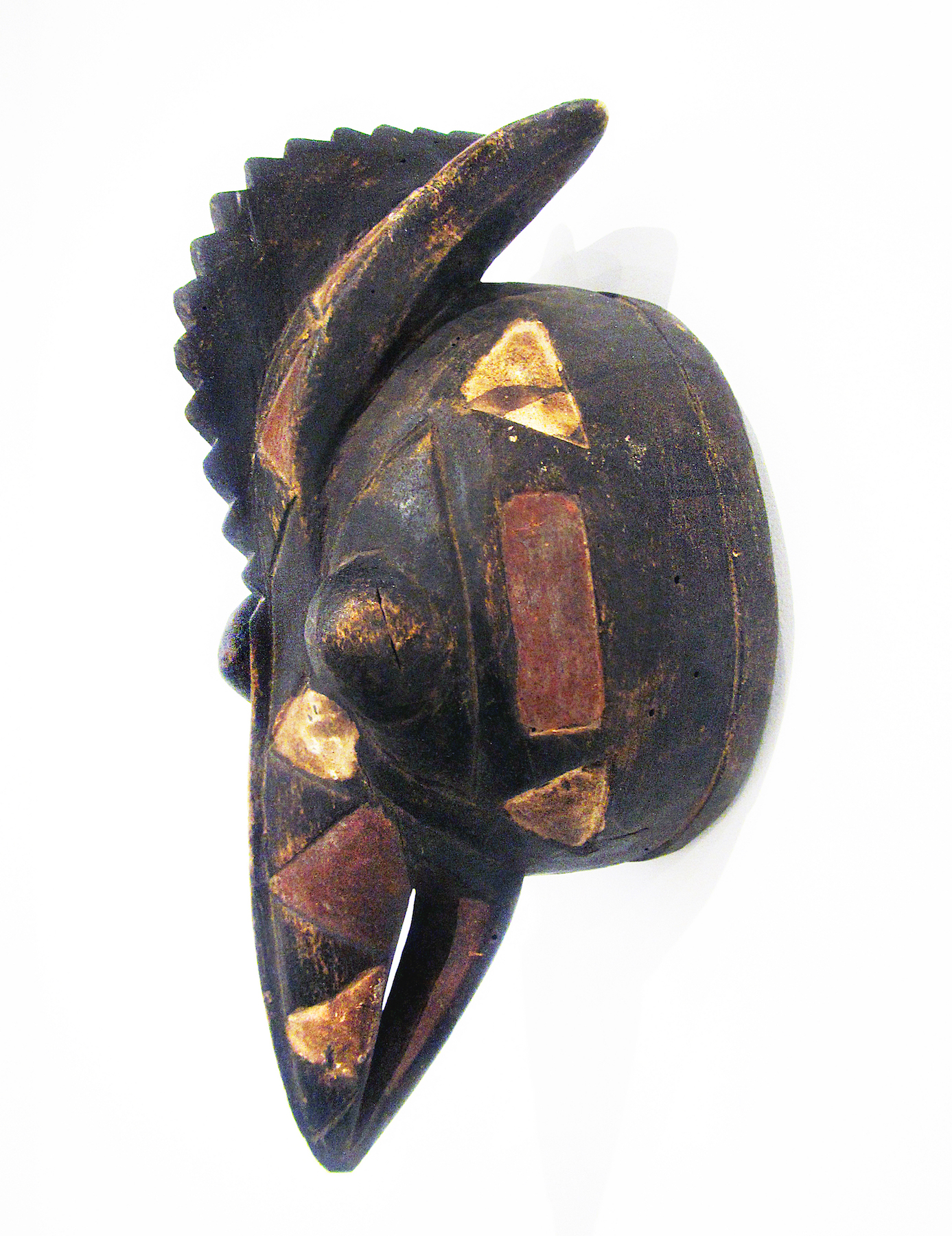#9
African rooster spirit mask—
Traces of crusted patina—
Cock sacrifice—
Drinking rooster blood—
Votive offerings—
Borneo rooster effigy
on shaman medicine box

Artist unknown
Rooster Mask (wan-noraogo) Mid-20th century
Mossi Peoples (Africa)
The Mossi people of Burkina Faso, Africa wear sacred rooster masks (wan-noraogo) during important events in village life. Masks appear during burials, funerals, initiations, and other annual cyclic rituals. A common feature on Mossi masks is a central crest that sweeps back from the top of the head, representing a bird. On rooster masks, the central lobe is ribbed, evoking a cock’s comb. The wooden rooster masks, dominated by a huge comb and a long, bent beak, are painted with geometric patterns. Many times, traces of crusted brown patina is found on the masks—evidence of potions used during sacrificial rituals. The masks honor nature spirits and play an important role in clan lineage. The inherent spirits in the masks are believed to protect people from disease, accident, or natural disaster. The masks are worn like caps on the head, with attached fiber or raffia costumes. When not worn, the masks are placed on shrines in the ancestral spirit houses. Sacrifices may be made on the mask to obtain favor from the spirits that the masks represent. The rooster character appears in the Mossi origin myth.
The Dayak people of Borneo practice a form of animist folk religion. They believe their god introduced the rooster and cockfighting as a gift to mankind. Their festivals consist of ritual cockfighting and the waving of a rooster over votive offerings in the hope of spiritual blessings. The ritual concludes with the sacrifice of the rooster, with its blood presented as an offering. Hens are also sacrificed to their deity. On occasion, Dayak spirit-mediums drink the blood of roosters as a tonic. The Dayak shamans keep wooden medicine boxes for their potions; often these boxes’ lids are adorned with guardian rooster effigies. The Dayaks believe that in the afterlife, humans become the fighting cocks of god.
The Dayak people of Borneo practice a form of animist folk religion. They believe their god introduced the rooster and cockfighting as a gift to mankind. Their festivals consist of ritual cockfighting and the waving of a rooster over votive offerings in the hope of spiritual blessings. The ritual concludes with the sacrifice of the rooster, with its blood presented as an offering. Hens are also sacrificed to their deity. On occasion, Dayak spirit-mediums drink the blood of roosters as a tonic. The Dayak shamans keep wooden medicine boxes for their potions; often these boxes’ lids are adorned with guardian rooster effigies. The Dayaks believe that in the afterlife, humans become the fighting cocks of god.
